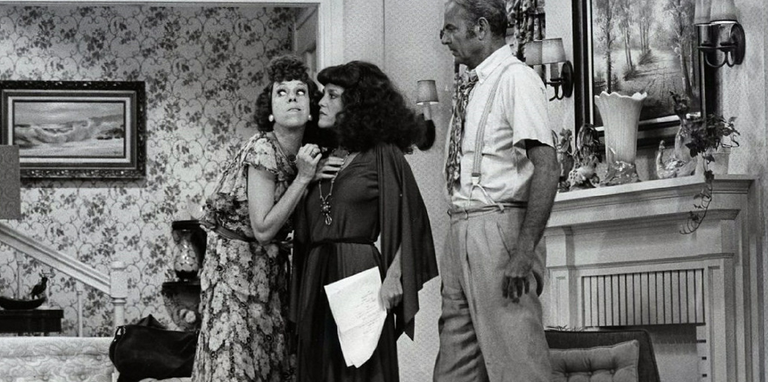
On the Writers Panel podcast, TV writer Zach Whedon tells the story of working with legendary writer and producer, David Milch the genius behind beloved shows like 'Deadwood' and 'NYPD Blue'.
The notoriously eccentric Milch would write entire episodes of Deadwood while "lying on the floor and dictating to someone who typed out his ideas". Zach describes writing for Milch as a spectator sport as he would listen to the showrunner rework the same line of dialogue for more than an hour.
The story of Milch's process has always stayed with me. I've always been fascinated with TV and the creative process. I admire their approach to story and how they manage to connect with their audiences on such a profound level.
But we can do more than just admire from a distance.
We as content marketers are so desperate for a creative identity that we've hijacked the journalists' newsrooms and stole the copywriters' playbook (what's good content marketing without clear and clean call-to-action copy?).
So why aren't we looking at our TV writing cousins for more empathic and passionate storytelling? TV is a writer's medium, making its process ripe for inspiration.
Almost 80 years of television has refined the art of writing for TV into a microcosmic creative science. A TV script is as close as you can get to a blueprint for a story.
Writing like a TV writer gets you to hone your story to its barest of elements. TV writers are forced to work in confines: they need to write scripts in very specific style (even font), not go too long, and remain conscious of their audiences (sound familiar?)
Despite limitations, show writers aren't afraid to imbue stories with emotional connections, talk about taboo subjects or even experiment with the medium.
A good way to start thinking like a TV writer is by sharing your own personal experiences. Even when writing for a particular brand, people want to make an emotional connection. When your topic doesn't have an obvious character to connect with, you as the writer can fill the need for a protagonist.
Here are some other ways you can use TV writing to lend more inspiration to your content writing.
1. Start a "writers room"
Many brands have social "command centres" and editorial meetings which can serve a very specific purpose. The difference in adopting a TV writers room approach is that it encourages an informal discussion, promotes stream of consciousness thinking and leads to more creative and free discussion around your brand or topic.
SNL is infamous for its competitive pitching environment, writers fighting for limited air-time to showcase their ideas. Other shows find their process is served best in a partnership. Larry David and Jerry Seinfeld wrote their episodes of Seinfeld longhand on yellow writing pads never using computers. The man behind "Rick & Morty" and "Community", Dan Harmon is famous for creating story circles, a tool that's quickly becoming popular in screenwriting.
2. Write a "treatment" for your content
Treatments are used in TV writing to plot the particular beats of an episode and break the story. For instance, in 'The Matrix' one beat for the film could be "Neo is presented with a red pill and blue pill. He takes the red pill."
Starting your story by creating a treatment is also a great way to give your content an opportunity to exist in a traditional story structure. In the 'TV Writer's Workbook', author Ellen Sandler (writer for Everybody Loves Raymond) says "treatments do all the heavy lifting" of writing a script. "If you don't find your story in this phase, then it would be harder, and probably impossible, to find later."
Before you start writing a piece, why not start a treatment. Plot all the things you want to explain or explore in 5-6 points in short one-two sentences.
3. Be the "showrunner" of the brand
Content writers have a real opportunity to be the "showrunners" of a particular brand voice. In a TV show setting, showrunners are the multiple hyphenate leaders of the TV brand. They lead writers, support directors, direct editors and encourage actors. They are the ones with the ultimate voice of the show and embody it in every way.
Why not be your own showrunner of your brand voice? Take a stronger initiative with the inner workings of your content: know why your content is working/not working, how it's promoted and whether it was successful or not.
Random Act of Kindness..
Hi killtheidea,
This post has been upvoted from me! :)
If you like what I'm doing please upvote this comment so I can continue to support accounts like yours.